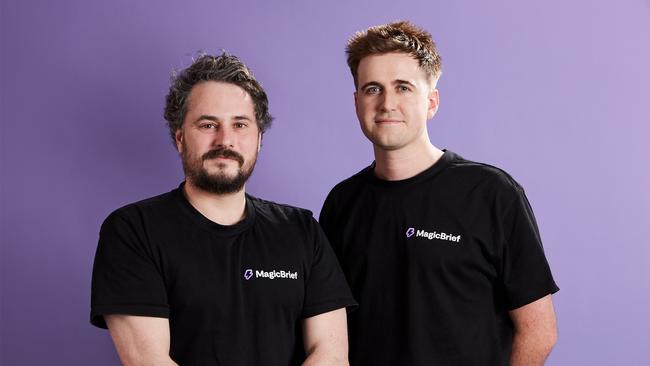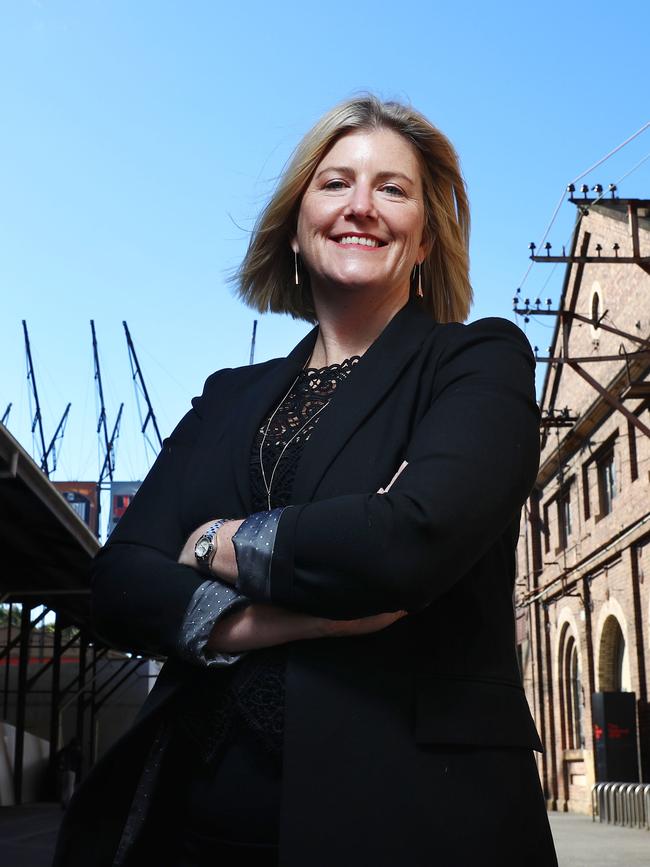Local unicorns the best path for budding founders
Almost half the start-ups funded from Blackbird’s 2022 fund were started by executives who had worked in its portfolio companies.

Budding start-up founders who work in homegrown giants like Canva and Deputy might have a better chance of receiving funding, new figures from Blackbird suggest.
Ten of the 22 start-ups it backed from its 2022 fund were run by founders who had worked in its portfolio companies, including Safety Culture and Culture Amp.
Executives at the venture capital fund, one of Australia’s largest, believe the experience founders get in Australia’s high-growth start-ups is beneficial, with many able to leverage experience and relationships to help turn their own ideas into a business.
Blackbird general partner Nick Crocker told The Australian that founders from ex-portfolio companies often did not need to waste time on introductions, with existing relationships allowing them to cut straight to the chase.
“When I’m meeting them (as a founder for the first time), it’s not a first pitch, it’s an extension of a relationship that we’ve already had, and I’ve been able to observe them operating over a long period of time,” he said. “So it’s not me getting to know you, it’s getting to know the business and the idea.”

That was important because the founder and investor relationship went on for several years, he said.
“When a founder is taking on investment, they’re taking on a relationship that’s akin to marriage … it’s multi-year, and it has a lot of implications,” he said.
Sally-Ann Williams of Cicada Innovations agrees. “We’re at the tipping point for software in Australia,” she said.
This was partly because some staff members who had worked in the nation’s more successful start-ups were beginning to cash out through employee share schemes.
Australia’s start-up ecosystem was now large enough that would-be founders who worked in the earlier stages of unicorn start-ups had the capital to fund their own ideas, she said, pointing to Canva and its recent secondary tranche sale.
“About half of the founders that are coming out of successful large businesses are focusing on a newly observed problem that they’ve seen while they were working there,” she said.

Some founders had realised it wasn’t commercially viable to fix an issue for a larger start-up and went on to found their own start-up to address the challenge.
“But creating a product to fix that problem was not necessarily the right fit to thrive and survive in that business,” Ms Williams said.
“I’m sure we’re going to see a lot of founders in about five or 10 years coming out of the CrowdStrike (software glitch) after the weekend.”
That concept was part of the driving force behind MagicBrief, founded by George Howes, a former creative director at health-technology start-up Eucalyptus, and former product designer at ag-tech start-up Halter.
Blackbird led Eucalyptus’s $2m seed raising in 2019 and has continued to back its raises, including participation in a $60m Series C raise in 2022. The fund also led a $32M Series B raising for Halter in 2021. In 2023, Blackbird was a key investor in MagicBrief's $2m seed raise.
Mr Crocker described Mr Howes as the “perfect example” of a staffer from one of its portfolio companies who leveraged his insights to build a successful business.
Mr Howes founded a marketing start-up that uses a company’s data and insights to suggest successful marketing strategies.
Mr Crocker said he was confident in Mr Howes’ ability to deliver, as he had vast experience and had led “one of the most sophisticated marketing teams anywhere in the world” at Eucalyptus. MagicBrief had secured a number of high-growth start-ups and businesses across Australia as clients.







To join the conversation, please log in. Don't have an account? Register
Join the conversation, you are commenting as Logout